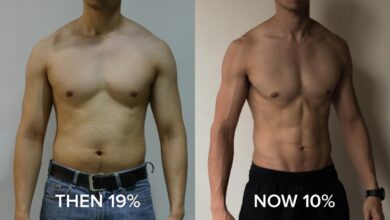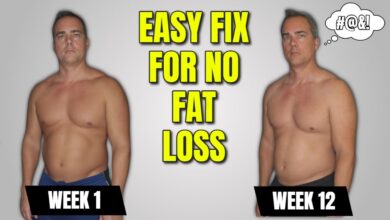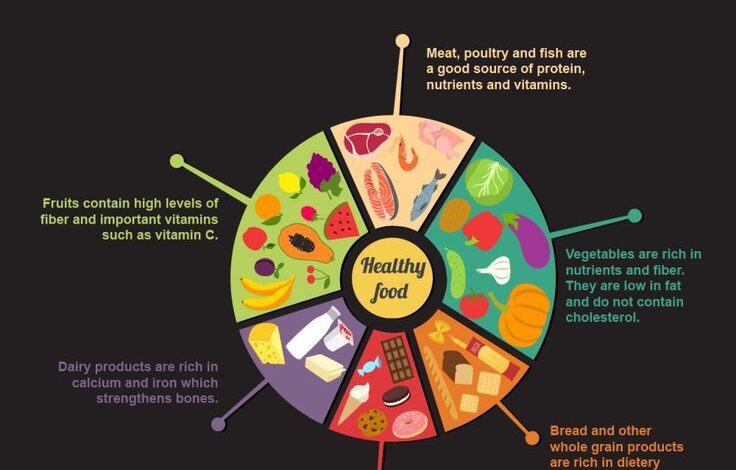
Essential Guide to Healthy Eating: Your Path to Well-being
Essential Guide to Healthy Eating: Your Path to Well-being – Navigating the world of nutrition can be overwhelming, with conflicting information and ever-changing dietary trends. But achieving a healthy lifestyle doesn’t have to be complicated. This comprehensive guide will equip you with the knowledge and practical tools to make informed choices that nourish your body and mind.
We’ll delve into the fundamental principles of balanced nutrition, exploring the essential nutrients your body needs and how to incorporate them into your daily meals. We’ll also address common dietary mistakes and provide solutions for making sustainable changes. Whether you’re looking to lose weight, boost your energy levels, or simply improve your overall health, this guide will provide you with the insights and inspiration to embark on a journey toward optimal well-being.
Practical Tips for Healthy Eating Habits
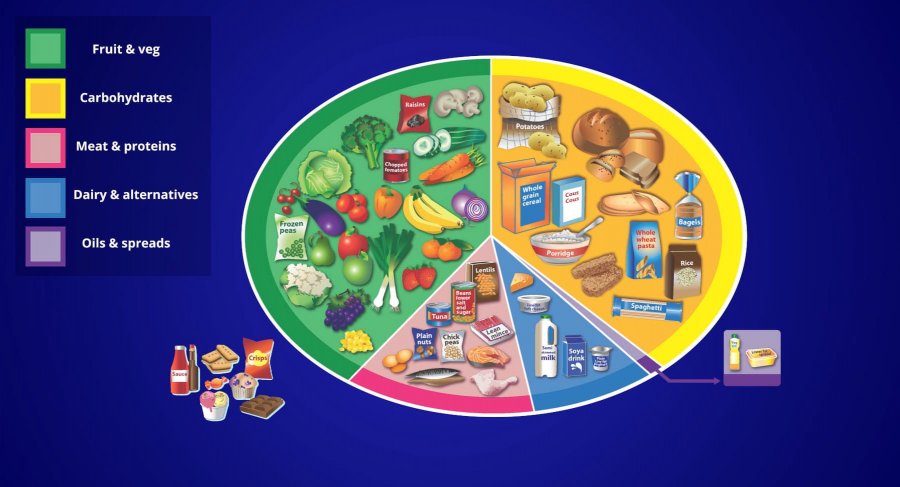
Healthy eating is not just about consuming specific foods; it’s about making sustainable changes to your lifestyle. This section provides practical tips for incorporating healthy habits into your daily routine, making healthy eating a part of your life.
Incorporating Healthy Snacks, Essential guide to healthy eating
Healthy snacks are essential for maintaining energy levels, preventing overeating, and providing your body with essential nutrients. Here are some tips for incorporating healthy snacks into your daily routine:
- Plan Ahead:Always have healthy snacks readily available to avoid reaching for unhealthy options when hunger strikes. Pack a bag of nuts, fruits, or vegetables for work or school.
- Choose Nutrient-Rich Options:Opt for snacks that are high in fiber, protein, and healthy fats, such as fruits, vegetables, nuts, seeds, yogurt, or hard-boiled eggs. These snacks will keep you feeling fuller for longer.
- Control Portions:Even healthy snacks can contribute to weight gain if consumed in excessive amounts. Use portion control tools like small bowls or measuring cups to ensure you’re eating a reasonable amount.
- Make it Fun:Experiment with different healthy snack combinations to keep things interesting. Try dipping vegetables in hummus, making fruit skewers, or creating your own trail mix.
Meal Prepping and Planning
Meal prepping and planning are crucial for maintaining healthy eating habits, especially when you have a busy schedule. Here’s how you can implement these strategies:
- Set Aside Time:Dedicate a few hours each week to meal prep. This could involve chopping vegetables, cooking grains, or preparing large batches of meals to freeze for later.
- Plan Your Menu:Create a weekly meal plan that includes healthy and balanced meals and snacks. This will help you stay organized and avoid impulsive food choices.
- Cook in Bulk:Prepare large quantities of meals that can be reheated throughout the week. This saves time and effort, making it easier to stick to your healthy eating plan.
- Use Leftovers:Repurpose leftovers into new meals. For example, leftover roasted chicken can be used in salads, soups, or sandwiches.
Mindful Eating
Mindful eating involves paying attention to your food choices and eating experiences. It’s about being present and enjoying your meals without distractions. Here are the benefits of mindful eating:
- Increased Awareness:Mindful eating helps you become more aware of your hunger and fullness cues, preventing overeating and making healthier food choices.
- Improved Digestion:When you eat mindfully, you chew your food thoroughly, which aids digestion and nutrient absorption.
- Reduced Stress:Mindful eating can help reduce stress and anxiety by promoting relaxation and focus on the present moment.
- Enhanced Enjoyment:By paying attention to the flavors, textures, and aromas of your food, you can enhance your enjoyment of eating.
Common Dietary Mistakes and Solutions: Essential Guide To Healthy Eating
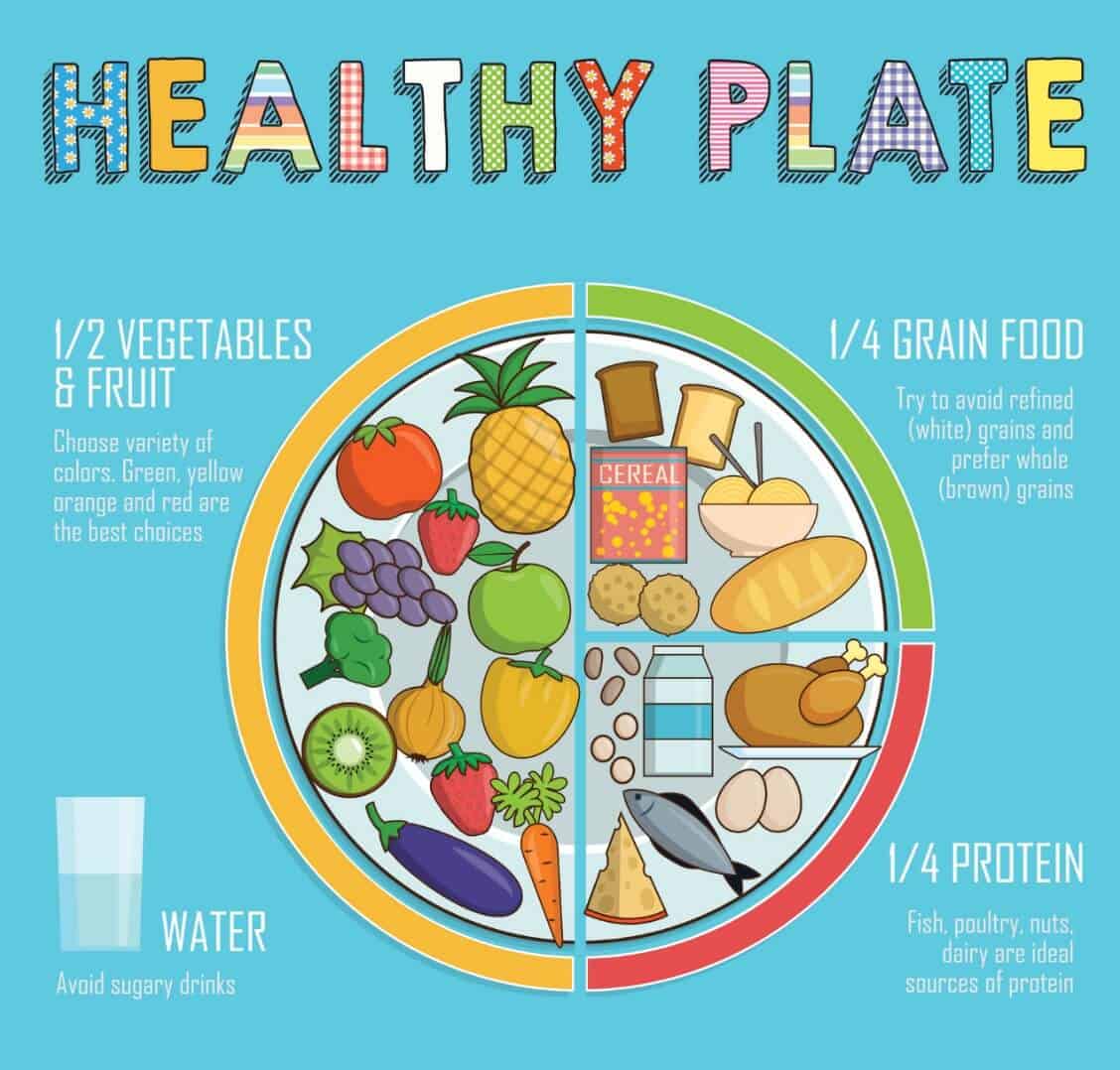
Everyone strives for a healthy lifestyle, but navigating the world of nutrition can be tricky. We often fall into dietary traps that sabotage our efforts. Recognizing these mistakes is crucial for making positive changes and achieving long-term health goals.
Skipping Meals
Skipping meals is a common mistake that can negatively impact your health. When you skip meals, your body goes into starvation mode, leading to several issues.
- Increased Hunger and Cravings:Skipping meals can trigger intense hunger pangs, making it more likely to overeat or make unhealthy food choices later.
- Low Energy Levels:Without regular fuel, your body lacks the energy to function optimally, resulting in fatigue, sluggishness, and difficulty concentrating.
- Metabolic Slowdown:Skipping meals can disrupt your metabolism, making it harder to burn calories and manage weight.
- Blood Sugar Fluctuations:Irregular eating patterns can lead to blood sugar fluctuations, causing mood swings, irritability, and even headaches.
Solution:Plan regular meals and snacks throughout the day to maintain stable blood sugar levels and prevent extreme hunger.
“Aim for three balanced meals and one or two healthy snacks daily.”
Focus on consuming nutrient-rich foods at each meal, including protein, healthy fats, and complex carbohydrates.
Overeating
Overeating is a common mistake that can lead to weight gain, digestive issues, and increased risk of chronic diseases.
- Portion Distortion:Our perception of portion sizes has become distorted, leading to excessive consumption.
- Emotional Eating:We often turn to food for comfort or stress relief, leading to overconsumption.
- Mindless Eating:Distractions while eating, such as watching TV or working, can make us lose track of how much we consume.
Solutions:
- Mindful Eating:Pay attention to your hunger and fullness cues. Eat slowly and savor each bite.
- Practice Portion Control:Use smaller plates and bowls to visually reduce your portion sizes.
- Identify Emotional Triggers:Recognize the situations or emotions that lead to overeating and find healthier coping mechanisms.
Not Drinking Enough Water
Water is essential for many bodily functions, including digestion, nutrient absorption, and temperature regulation. Not drinking enough water can lead to dehydration, which can manifest in various ways.
- Fatigue and Headaches:Dehydration can cause fatigue, dizziness, and headaches.
- Constipation:Water helps move waste through the digestive system. Dehydration can lead to constipation.
- Kidney Stones:Adequate water intake helps prevent kidney stones by flushing out waste products.
Solutions:
- Carry a Water Bottle:Keep a reusable water bottle with you and sip on it throughout the day.
- Drink Water Before, During, and After Meals:This can aid digestion and help you feel fuller.
- Choose Water Over Sugary Drinks:Opt for water instead of soda, juice, or sweetened beverages.
Not Getting Enough Fiber
Fiber is a type of carbohydrate that our bodies cannot digest. It plays a vital role in digestive health, weight management, and blood sugar control.
- Digestive Issues:Insufficient fiber can lead to constipation, bloating, and gas.
- Increased Risk of Heart Disease:Fiber can help lower cholesterol levels, reducing the risk of heart disease.
- Blood Sugar Fluctuations:Fiber slows down the absorption of sugar into the bloodstream, helping regulate blood sugar levels.
Solutions:
- Increase Your Intake of Fruits, Vegetables, and Whole Grains:These foods are naturally rich in fiber.
- Add Fiber Supplements:If you struggle to meet your fiber needs through food alone, consider adding a fiber supplement to your diet.
- Gradually Increase Your Fiber Intake:Sudden increases in fiber can cause digestive discomfort. Start slowly and gradually increase your intake over time.
Relying on Diets Instead of Lifestyle Changes
Many people fall into the trap of relying on fad diets for quick weight loss. However, these diets are often unsustainable and can lead to nutrient deficiencies and rebound weight gain.
- Nutrient Deficiencies:Restrictive diets often lack essential nutrients, leading to health problems.
- Unsustainable Habits:Fad diets are difficult to maintain long-term, leading to weight regain once the diet is over.
- Yo-Yo Dieting:Constant weight fluctuations due to dieting can negatively impact your metabolism and overall health.
Solutions:
- Focus on Sustainable Lifestyle Changes:Make gradual changes to your eating habits and physical activity levels that you can maintain over time.
- Consult a Registered Dietitian:A registered dietitian can provide personalized guidance on creating a healthy eating plan that meets your individual needs.
- Listen to Your Body:Pay attention to your hunger and fullness cues and choose foods that make you feel good.
Not Consulting a Registered Dietitian
A registered dietitian (RD) is a qualified professional who can provide personalized guidance on nutrition and healthy eating. Consulting an RD can be beneficial for various reasons.
- Tailored Nutrition Plans:An RD can create a meal plan that meets your individual needs, considering your health goals, dietary preferences, and any allergies or intolerances.
- Evidence-Based Information:RDs are trained in the latest nutrition science and can provide accurate and reliable information.
- Support and Motivation:An RD can provide ongoing support and motivation to help you stay on track with your healthy eating goals.
The Role of Physical Activity in Healthy Eating
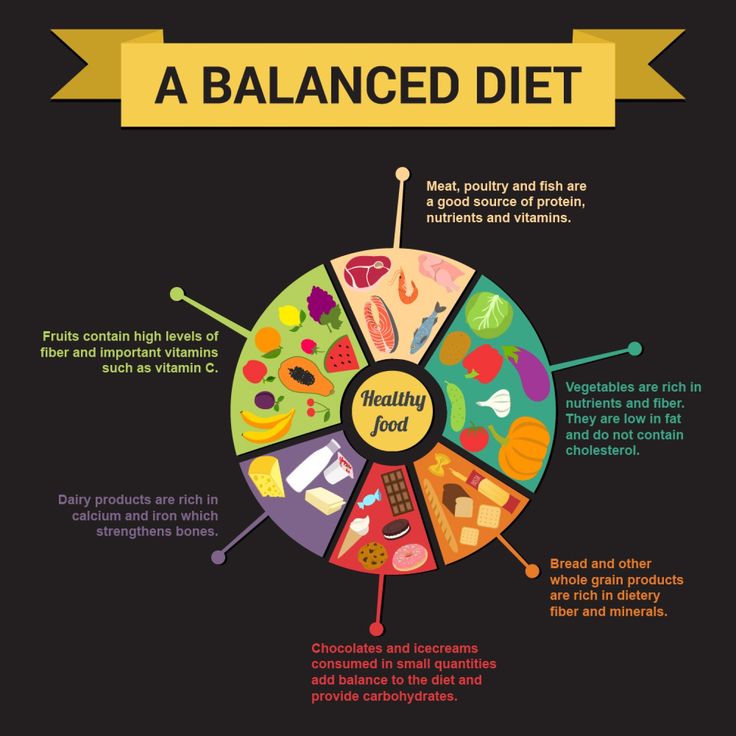
You might be wondering how physical activity fits into a healthy eating guide. While diet plays a crucial role in maintaining good health, regular exercise is equally important. It complements healthy eating habits, leading to a holistic approach to wellness.
Benefits of Regular Exercise for Overall Health and Weight Management
Regular physical activity offers numerous benefits for overall health and weight management. It strengthens your muscles and bones, improves cardiovascular health, and helps manage weight. Exercise also enhances mood, reduces stress, and improves sleep quality.
- Weight Management:Physical activity burns calories, which is essential for weight management. When you burn more calories than you consume, you lose weight. Regular exercise also helps build muscle mass, which boosts your metabolism, further aiding in weight loss.
- Improved Cardiovascular Health:Exercise strengthens your heart and lungs, improving blood circulation and reducing the risk of heart disease, stroke, and other cardiovascular problems.
- Enhanced Mood and Reduced Stress:Exercise releases endorphins, which have mood-boosting effects. It also helps reduce stress and anxiety by providing an outlet for pent-up energy.
- Improved Sleep Quality:Regular exercise can improve your sleep quality by promoting deeper, more restful sleep. However, it’s crucial to avoid exercising too close to bedtime, as it can make it harder to fall asleep.
Tips for Incorporating Physical Activity into a Busy Lifestyle
Finding time for exercise can be challenging, especially with a busy schedule. However, even small changes can make a big difference. Here are some tips for incorporating physical activity into your daily routine:
- Take the stairs instead of the elevator:This simple act provides a quick burst of exercise.
- Walk or cycle to work or errands:If possible, choose active transportation options instead of driving.
- Get active during breaks:Take short walks or stretch during work breaks.
- Incorporate exercise into your daily routine:Find activities you enjoy and can fit into your schedule, such as dancing, swimming, or gardening.
- Set realistic goals:Start with small, achievable goals and gradually increase the intensity and duration of your workouts.
- Make it fun:Choose activities you enjoy and find a workout buddy to keep you motivated.
- Listen to your body:Don’t push yourself too hard, especially when starting out. Rest when needed and gradually increase the intensity and duration of your workouts.
Myths and Misconceptions about Healthy Eating
Navigating the world of nutrition can be tricky, especially with the constant barrage of conflicting information and fad diets. This often leads to confusion and the perpetuation of myths and misconceptions about healthy eating. It’s essential to approach dietary advice with a critical eye, relying on evidence-based information from credible sources.
An essential guide to healthy eating emphasizes portion control, balanced meals, and mindful snacking. It’s inspiring to see success stories like victoria lost 100 pounds in 1 year with myfitnesspal , proving that dedication and the right tools can lead to incredible results.
Remember, consistency is key, and even small changes can make a big difference in your overall health and well-being.
Let’s debunk some common myths and understand the science behind healthy eating.
An essential guide to healthy eating is all about finding a sustainable balance, not just about achieving a certain weight. It’s crucial to remember that focusing solely on weight loss, especially at a young age, can have long-term consequences, like affecting your relationship with food and potentially leading to disordered eating.
For a deeper dive into the long-term effects of weight loss, even when you’re young, check out this article: the long term effects of losing weight even when youre young. Ultimately, a healthy approach to eating should prioritize overall well-being and focus on nourishing your body with nutrient-rich foods that fuel your energy and support your long-term health.
Fat is the Enemy
It’s a common misconception that all fat is bad for you. In reality, healthy fats are essential for various bodily functions, including hormone production, cell growth, and absorption of certain vitamins. Diets rich in healthy fats, such as those found in avocados, nuts, seeds, and fatty fish, can actually contribute to a healthy heart and overall well-being.
The key is to distinguish between healthy fats (monounsaturated and polyunsaturated fats) and unhealthy fats (saturated and trans fats).
- Healthy fatsare essential for good health and can help lower cholesterol levels, improve heart health, and reduce inflammation.
- Unhealthy fats, on the other hand, can increase cholesterol levels, raise the risk of heart disease, and contribute to weight gain.
Carbohydrates Make You Fat
Another prevalent myth is that carbohydrates are the primary culprit behind weight gain. While it’s true that consuming excessive carbohydrates can lead to weight gain, carbohydrates are an essential source of energy for our bodies. The key is to choose complex carbohydrates, like whole grains, fruits, and vegetables, over refined carbohydrates, such as white bread and sugary drinks.
An essential guide to healthy eating should include a variety of delicious and satisfying options, and that’s where diets and recipes for meal worthy salads come in. Salads can be packed with nutrients, fiber, and flavor, making them a perfect addition to any healthy eating plan.
They can be customized to your liking, incorporating your favorite vegetables, fruits, proteins, and dressings. So, whether you’re looking for a light lunch or a hearty dinner, don’t underestimate the power of a well-crafted salad!
These complex carbohydrates are digested slowly, providing sustained energy and promoting satiety.
Skipping Meals is a Good Way to Lose Weight
Many believe that skipping meals can accelerate weight loss. However, this approach is often counterproductive. Skipping meals can lead to overeating later, disrupting your metabolism, and potentially causing nutrient deficiencies. Instead of skipping meals, focus on consuming balanced, nutritious meals and snacks throughout the day.
Organic Food is Always Better
Organic food is often perceived as superior to conventionally grown food. While organic farming practices minimize pesticide and herbicide use, the nutritional value of organic and conventional produce is generally comparable. The choice between organic and conventional produce is often a matter of personal preference and budget.
All Calories are Created Equal
The notion that all calories are equal is misleading. The source of calories matters. A calorie from a processed food is not the same as a calorie from a whole, unprocessed food. Whole foods provide essential nutrients, fiber, and antioxidants, which contribute to overall health.
Processed foods, on the other hand, often lack these nutrients and can contribute to inflammation and chronic disease.
Resources and Support for Healthy Eating
Embarking on a healthier eating journey doesn’t have to be a solitary endeavor. Numerous resources and support systems can empower you to make informed choices and sustain positive changes.
Reputable Organizations and Websites
Accessing reliable nutrition information is crucial for making informed decisions about your diet. Reputable organizations and websites provide evidence-based guidance, helping you navigate the vast sea of dietary advice.
- The Academy of Nutrition and Dietetics (AND):This professional organization for registered dietitians offers a wealth of resources on nutrition, including articles, recipes, and tools. You can find evidence-based information on a wide range of topics, from weight management to food allergies. [Website: https://www.eatright.org/]
- The National Institutes of Health (NIH):The NIH is a leading source of health information, including nutrition. Their website provides comprehensive information on dietary guidelines, nutritional deficiencies, and various health conditions related to diet. [Website: https://www.nih.gov/]
- The American Heart Association (AHA):The AHA focuses on cardiovascular health and provides valuable information on heart-healthy diets, including dietary recommendations and recipes. [Website: https://www.heart.org/]
- The United States Department of Agriculture (USDA):The USDA’s MyPlate program provides a visual guide to healthy eating, emphasizing a balanced intake of fruits, vegetables, grains, protein, and dairy. [Website: https://www.myplate.gov/]
Apps and Tools for Healthy Eating
In today’s digital age, numerous apps and tools can support your healthy eating journey. These platforms offer a variety of features, from tracking your food intake to providing personalized meal plans.
- MyFitnessPal:This popular app allows you to track your calories, macros, and exercise. It also provides a large database of foods and recipes, making it easy to log your meals. [App Store/Google Play]
- Lose It!:Similar to MyFitnessPal, Lose It! focuses on calorie tracking and weight loss. It offers personalized meal plans and provides progress tracking. [App Store/Google Play]
- Noom:Noom combines calorie tracking with behavioral coaching to help you develop healthier eating habits. It offers personalized insights and guidance based on your individual needs. [App Store/Google Play]
- Cronometer:This app goes beyond calorie tracking, providing detailed macronutrient breakdowns and analyzing your food intake for potential nutrient deficiencies. [App Store/Google Play]
Registered Dietitians: Your Nutrition Experts
Seeking professional guidance from a registered dietitian (RD) can significantly benefit your health and well-being. RDs are experts in nutrition and can provide personalized advice tailored to your individual needs.
- Personalized Meal Plans:RDs can create meal plans that meet your dietary requirements, preferences, and health goals. They consider factors like allergies, intolerances, and medical conditions.
- Nutritional Counseling:RDs can provide counseling on various nutrition-related topics, such as weight management, food allergies, and chronic disease prevention. They can help you understand the role of different nutrients and develop sustainable eating habits.
- Evidence-Based Information:RDs are trained in evidence-based nutrition and can provide accurate and up-to-date information. They can debunk common myths and misconceptions about healthy eating.
- Support and Accountability:RDs can provide support and accountability as you work towards your health goals. They can help you overcome challenges and stay motivated.
Final Conclusion
By understanding the basics of healthy eating, incorporating practical tips into your routine, and debunking common myths, you can empower yourself to make informed choices that support your health and well-being. Remember, healthy eating is a lifelong journey, and it’s about finding a sustainable approach that works for you.
Embrace the journey, nourish your body, and unlock your full potential!



